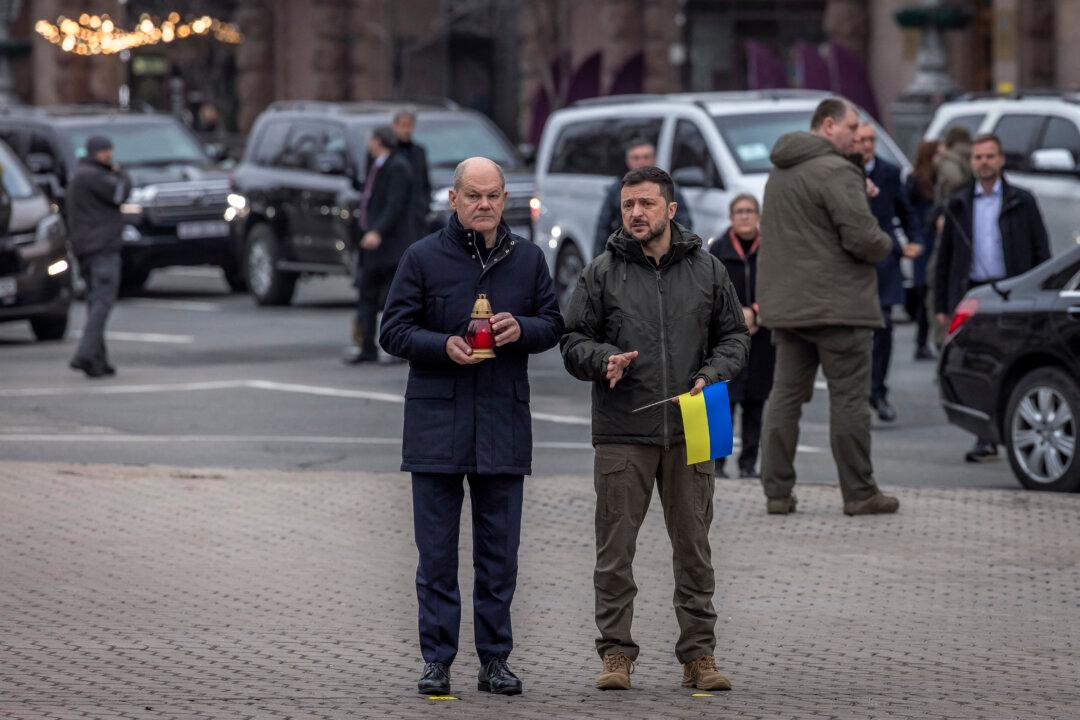German Chancellor Olaf Scholz pledged on Dec. 2 new military aid for Ukraine during an unannounced visit to Kyiv, as he sought to reaffirm Ukraine of Germany’s support amid the ongoing war with Russia.
The visit marked his first to Kyiv in over two years since Russia launched its full-scale invasion in February 2022. Ukrainian President Volodymyr Zelenskyy said their meeting lasted more than two and a half hours.





